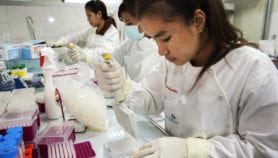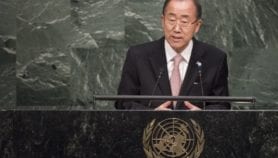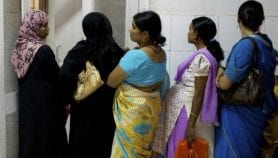By: Mike Shanahan
Send to a friend
The details you provide on this page will not be used to send unsolicited email, and will not be sold to a 3rd party. See privacy policy.
[MARRAKECH] Global efforts to halve hunger and malnutrition by 2015 are doomed to fail because of the lack of political will and funding for agricultural science, a senior researcher warned today (7 December).
“It’s a disgrace. We could do it, but won’t,” said Per Pinstrup-Andersen, chair of the Science Council of the Consultative Group on International Agricultural Research (CGIAR).
Addressing journalists at CGIAR’s annual meeting, Pinstrup-Andersen said there has been “too much rhetoric and too little action. An immense amount of talk, internationally, is not being followed up by policymakers”.
He said that the key to helping people escape poverty and hunger was science — both through modern approaches, such as biotechnology, and by finding applications for farmers’ traditional knowledge.
But he said that too little is being invested in agricultural research in developing countries to give any hope of achieving the United Nations Millennium Development Goal of halving the proportion of people who are hungry by 2015.
According to Pinstrup-Andersen, these nations spend on average 0.5 per cent of the value of their agricultural output on research in the sector. The
“Developing countries should increase investment to two per cent,” he said, adding that the lack of funding was particularly acute in sub-Saharan
Pinstrup-Andersen said that if the world is serious about tackling hunger it “must get its act together”, adding that “the resources are there but the political will is not”.
His warning came the day after Joachim von Braun, director-general of the International Food Policy Research Institute — one of the 15 CGIAR research centres — presented an overview of the world food situation.
Von Braun said that large developing countries — including
The IFPRI report, The World Food Situation – An overview, says the number of hungry people in sub-Saharan
In 2000, the leaders of 191 nations adopted the UN Millennium Development Goals. These eight targets — including halving hunger — are to be achieved by 2015.
“If the Millennium Development Goals are not met, the international community risks losing what little credibility is has left — which is not much,” said Pinstrup-Andersen.
CGIAR is an international alliance of governments and donor agencies that funds agricultural research in developing countries.













